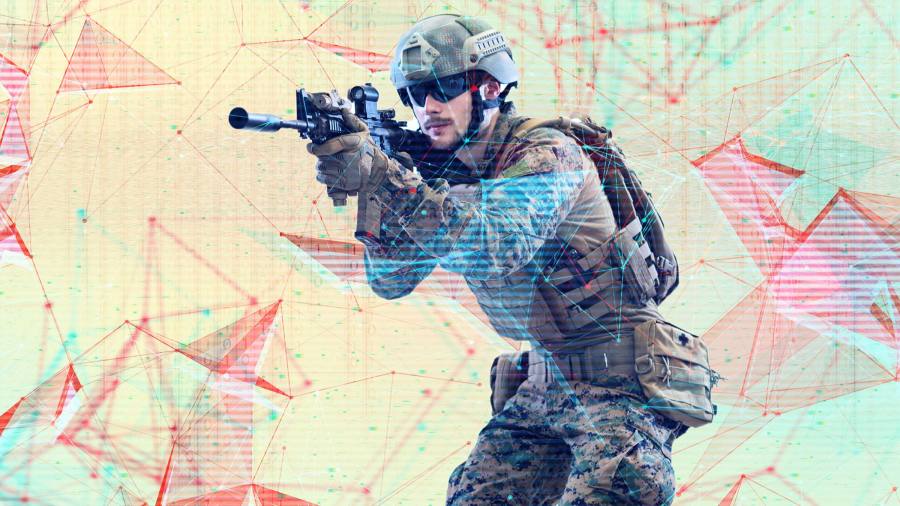[ad_1]
During the cold war it was said that the US had a military-industrial complex, while the Soviet Union was one. The question today is how far the US must develop a military-technological complex, just as China is turning into one.
This month, the US National Security Commission on Artificial Intelligence published a 752-page report highlighting the seriousness of China’s strategic threat and US unpreparedness. “Within the next decade, China could surpass the United States as the world’s AI superpower,†it concludes.
To maintain US supremacy, the commission recommends a long list of actions, including injecting technological expertise into every military domain, massively increasing federal research spending and investing heavily in critical infrastructure and strategic industries, such as semiconductors.
There is no doubt the challenge posed by China will require a long-term, systemic response from the US, not the natural reflex of the attention-deficient superpower. But the US must resist the temptation to emulate China’s pursuit of “military-civil fusionâ€. While government and business will have to collaborate to an intimate degree, they should never run off together. “We do not have military-civil fusion, nor should we,†says Gilman Louie, a commission member and technology venture capitalist.
As the commission argues, AI is of overriding importance to national security because it can magnify so many military capabilities and expose strategic vulnerabilities. It enables battlefield weapons systems, such as swarms of drones, to be deployed at terrifying speed and macro-scale with micro-precision. “In the future, warfare will pit algorithm against algorithm,†the report states. “Humans cannot be everywhere at once but software can.â€
Yet AI can also be used in more subtle ways to amplify “weapons of mass influenceâ€, undermining a rival’s economic stability, critical infrastructure and societal cohesion. The rolling cyber attacks and foreign-instigated disinformation campaigns under way in the US highlight the range of exposed targets and how much damage can be done short of direct military confrontation.
The added complication is that, as well as being geopolitical rivals, the US and China are intertwined economic partners. US teenagers use Chinese-made iPhones while Chinese students flock to US universities. “China is not self-isolating in the way that the Soviet Union was,†says Anja Manuel, director of the Aspen Security Forum, supporting the commission’s recommendation of “targeted disentanglementâ€.
Another difference with the cold war is how much essential technology is now controlled by US private companies. Only the federal government could have mobilised the resources for the Manhattan project in the 1940s to build the atomic bomb. But West Coast tech companies now dominate data resources and AI expertise. The commission itself was chaired by Eric Schmidt, Google’s former chairman, and included representatives from Microsoft, Amazon and Oracle.Â
The tech giants have been wrapping themselves in the American flag and presenting themselves as national champions. Just as the Bush administration went soft on tech companies in the aftermath of 9/11, because of their usefulness to the national security agencies, so there may be an impulse to go soft on them today over competition issues because they are seen as strategic technological assets.Â
That would be a mistake. Encouragingly, the Biden administration has just hired Tim Wu and is vetting Lina Khan, two antitrust experts who are among the tech industry’s toughest critics. “It seems as though Silicon Valley has glommed on to this China argument and is saying ‘do not break us up’. But this does not ring true to those in the technology field,†says Lindsay Gorman, a fellow at the German Marshall Fund of the US. The priority must be on creating the Googles and Microsofts of tomorrow, she says, rather than protecting the incumbents of today.Â
In 1961, President Dwight Eisenhower first used the term “military-industrial complexâ€, warning of its “acquisition of unwarranted influence†and its potential threat to democracy. “Only an alert and knowledgeable citizenry can compel the proper meshing of huge industrial and military machinery of defence with our peaceful methods and goals, so that security and liberty may prosper together,†he said.Â
The strength of the US lies in invention, innovation and fierce economic and political competition. That is its greatest national security asset that should never be lost.
[ad_2]
Source link





